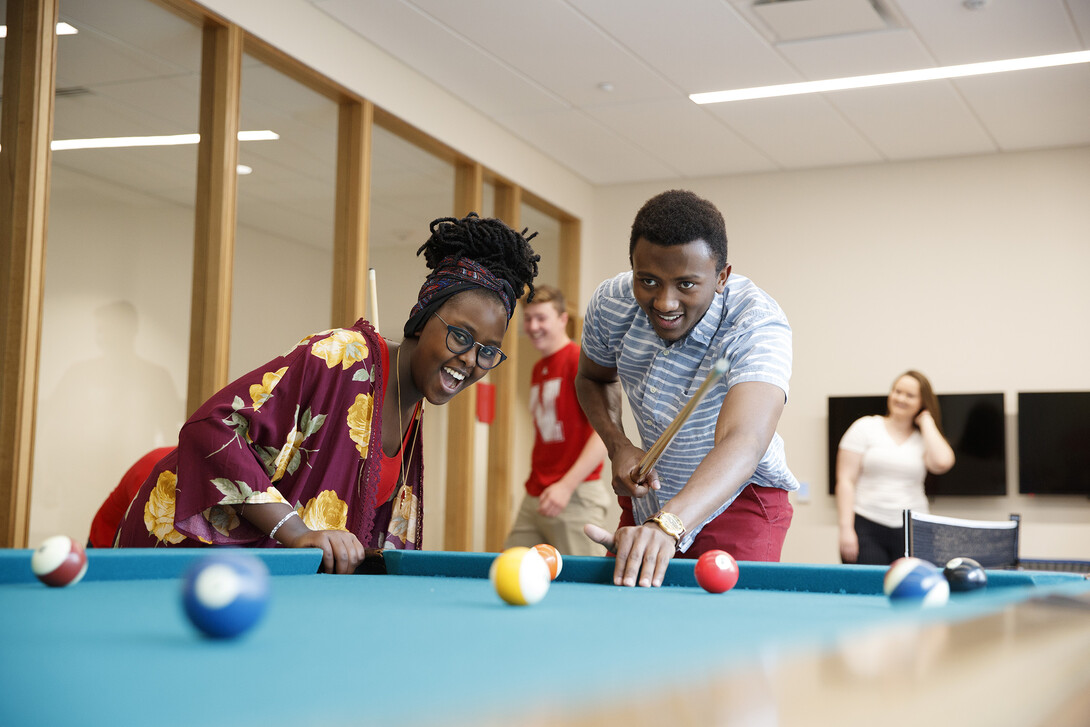
The job of a resident assistant is multifaceted — from helping residents on their floor with resources and problem-solving, to maintaining the safety and well-being of residents. They play an important role in the on-campus living experience.
One way they maintain relationships with residents and check in to provide support is through regular, one-on-one conversations with residents called “Intentional Interactions.”
“I always tell my residents my main goal is to just check in on them. In the end, my role as an RA is to help them in whatever way they need,” Ashleigh Welch, a resident assistant in Harper Hall, said. “Everyone is different. Sometimes this means checking up on their mental health or helping them work through roommate issues. Mainly, I want to make sure residents know that I am a safe person for them and that I care about them.”
In Fall 2021, RAs had more than 13,000 conversations with close to 5,000 residents.
“Intentional Interactions are a pivotal aspect of supporting residents in the halls,” Jordan Foreman-Black, associate director for learning experience in Residence Life, said. “Each of these interactions allows for students to have meaningful conversations with their RA that are part of the Nebraska Residential Experience and are designed to give students information and support to help them maximize their time on campus.”
Well-being is one of five Nebraska Residential Experience programming areas that help support students.
Welch said many times, conversations can open doors for students to express the need for mental health resources. Her experience as an RA taught her that you can’t assume if a person is struggling at first glance.
“I wouldn’t have known about even half of the residents who were struggling with mental health had I not had intentional interviews with them,” Welch said.
The opportunity to have conversations with her residents many times resulted in connecting students to resources that helped with mental health, academic resource needs or assistance with roommate disagreements.
“One of the reasons I love my job so much is that I get to be a safe person for residents to come to and feel loved and supported during such a critical time in their lives,” Welch said.
Whether it’s homesickness, balancing classes or conflict with roommates, residents can always reach out to their RA. Oftentimes, their RA has been through similar challenges themselves.
More information on the Nebraska Residential Experience can be found here.







